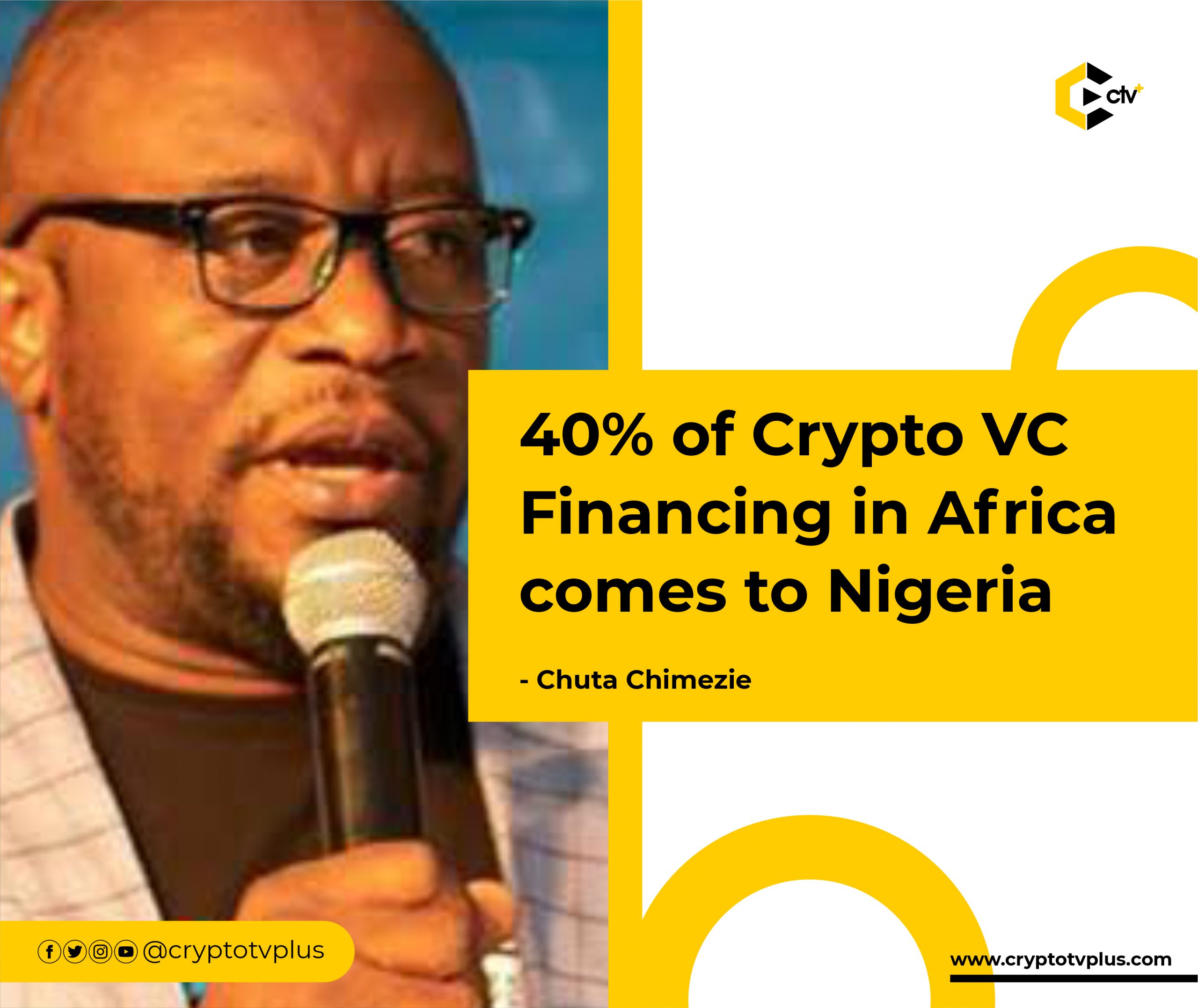News
40% of Crypto VC Financing in Africa comes to Nigeria – Chuta Chimezie

The Founder of Blockchain User Group, Nigeria, Chuta Chimezie, addressed the Blockchain Vibes audience on the Evolution of Blockchain Technology in Nigeria at the event held in Lagos.
While explaining the process, he said neither bitcoin nor blockchain technology was welcomed in the country with open arms by government bodies.
A major reason behind this was the prevalent ponzi scheme that had just ravaged her citizens like MMM, Inksnation etc, which made a lot of Nigerians to lose their money after expecting huge returns from investments in these scams. However, after a while, people started seeing the application of cryptocurrencies, and how it could impact lives positively.
One very peculiar situation was the ENDSARS protest of 2020 where young Nigerians protested against police brutality. At a time, cryptocurrency came to the rescue as financial institutions blocked avenues of raising and using funds through its system.
In 2021, the Central Bank of Nigeria prohibited Financial institutions from facilitating cryptocurrency transactions, and closed down accounts associated with cryptocurrencies. And this drove, peer-to-peer transactions. In the same year, Nigeria had her first Bitcoin ATM. More billboards advertising crypto products came on the streets.
Read this also:
- Blockchain Enables you to Build New Types of Innovative Products – Chuta Chimezie
- DeFi & NFTs will transform the world into a new powerful society – Chuta Chimezie
- Blockchain Nigeria User Group Partners with Solana Foundation for the Solana Season Hackathon
Blockchain Events and VCs
By the end of 2021, the blockchain ecosystem in Nigeria had expanded with many events held across Lagos, Abuja, and Port Harcourt. These events drove crypto education, awareness, and adoption throughout the Nigerian ecosystem.
Speaking investments, Mr. Chuta said, Nigeria attracted up to 40% of crypto VC financing invested in Africa. This saw the rise of products focused at remittance and payments which are two major problems faced by the most populous African nation.
Despite the strive and progress made so far in advancing crypto and blockchain use in Nigeria, the Founder of BNUG reiterated that lack of awareness, regulations, issues around security, privacy, control, fraudulent schemes, scams, and lack of talents are challenges affecting the industry locally.
He said, a public-private collaboration will go a long way in resolving the issues in the industry. He added that reskilling the workforce is very key to making things better as we wait for better regulations to make the industry safer.
What do you think of this article? Share your comments below.

























Pingback: 40% of Crypto VC Financing in Africa comes to Nigeria -Chuta Chimezie by Chuks Nnabuenyi Jr – CryptoTvplus Events: NFT, DeFi, Bitcoin, Ethereum, Altcoin Events
Pingback: Nigeria to pass crypto bill into law – Bitco Pier